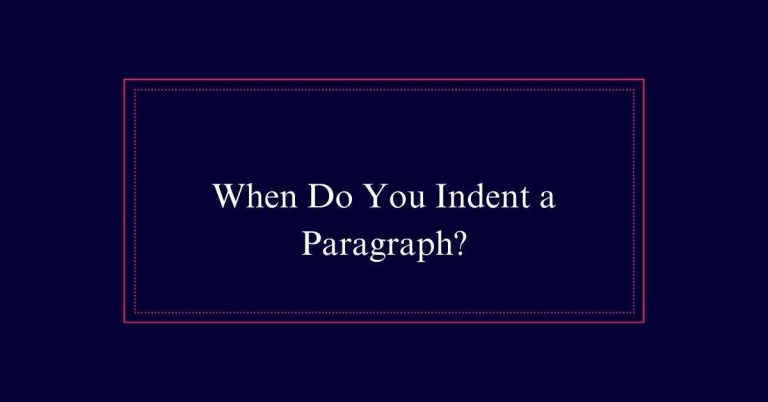Welcome or Welcomed
‘Welcome’ can be an adjective, verb, or noun. As an adjective, it describes something pleasing or appreciated, as in ‘You are welcome here.’ As a verb, it means to greet warmly, such as ‘We welcome new members.’ ‘Welcomed’ is the past tense of the verb, indicating someone or something was received with pleasure, e.g., ‘She was welcomed warmly.’
Welcome as an Adjective
As an adjective, ‘welcome’ describes something that is pleasing or appreciated. It conveys a sense of acceptance and gratitude. For example, when someone says, ‘Your thoughts are welcome,’ they are expressing that your input is valued.
The adjective can also be used in phrases such as, ‘You are welcome to stop by,’ indicating that your presence or action is desired. This usage highlights an invitation or acceptance.
By utilizing ‘welcome’ as an adjective, communication becomes warmer and more inclusive. It fosters a positive atmosphere, whether in personal interactions or formal settings.
Meaning of ‘Welcome’
The word ‘welcome’ encompasses various meanings and functions in the English language.
As an adjective, it describes something that is wanted, appreciated, or pleasing. For instance, ‘Your thoughts are welcome.’
As a verb, it means to greet or accept something with pleasure, such as, ‘We were welcomed into the home by the family.’
Additionally, ‘welcome’ serves as an interjection to greet guests warmly, similar to saying ‘hello’ but with more invitation.
The phrase ‘You are more than welcome’ emphasizes a genuine sense of appreciation or invitation.
Examples of ‘Welcome’
In various contexts, ‘welcome’ is used to convey warmth, acceptance, and appreciation.
As an adjective, ‘welcome’ describes something that is pleasing or wanted, as in ‘Your insights are welcome.’
When used as a verb, it signifies greeting or accepting with pleasure, such as ‘They welcomed the new team member warmly.’
As an interjection, ‘welcome’ serves as a warm greeting, often implying invitation, like ‘Welcome to our home!’
The phrase ‘You are more than welcome’ is an enhanced expression of appreciation or invitation.
Each usage underscores a positive reception, whether it’s welcoming thoughts, people, or actions.
Common Phrases With ‘Welcome’
Common phrases with ‘welcome’ often highlight the word’s versatility and ability to convey warmth and acceptance.
For instance, ‘You are welcome’ is commonly used to acknowledge gratitude.
The phrase ‘Make yourself at home; you are always welcome here’ exemplifies a heartfelt invitation.
Similarly, ‘Welcome aboard’ is frequently used in professional settings to greet new team members.
Expressions like ‘Welcome to the family’ are used to make individuals feel included and valued.
Another popular phrase, ‘You are more than welcome,’ emphasizes a genuine sense of appreciation and openness.

Welcome as a Verb
Shifting focus from common phrases, ‘welcome’ as a verb means to greet or receive someone with pleasure. It signifies an act of hospitality or acceptance. When used as a verb, ‘welcome’ conveys a warm, inviting approach. It is an active expression of making someone feel at ease and appreciated.
Key aspects of using ‘welcome’ as a verb:
- Greeting: To meet someone with kindness.
- Accepting: To allow or receive something favorably.
- Inviting: To extend an offer for someone to join or participate.
- Embracing: To show readiness in receiving someone or something.
Verb Form Examples
To illustrate the versatility of ‘welcome’ as a verb, consider these practical examples. When someone arrives at your home, you might say, ‘We welcomed our guests warmly.’ This shows a greeting with pleasure.
In a professional context, a manager might state, ‘We welcome innovative ideas,’ indicating acceptance and encouragement.
Another example is, ‘The committee welcomed the proposal,’ which implies positive reception. Each sentence demonstrates how ‘welcome’ as a verb can be used to convey greeting, acceptance, or approval.
Phrases Using ‘Welcome’
In various contexts, ‘welcome’ can be used in phrases to convey warmth and acceptance. These phrases often indicate that someone or something is appreciated or invited.
For example, saying ‘You are welcome to join us’ extends an invitation. Similarly, ‘Your input is welcome’ shows appreciation for contributions.
To emphasize this, consider the following phrases:
- ‘Feel welcome to ask any questions.’
- ‘Guests are always welcome here.’
- ‘You are welcome to stay as long as you like.’
- ‘Your feedback is welcome and valued.’
Welcome as an Interjection
When used as an interjection, ‘welcome’ serves to warmly greet someone or express hospitality. This usage conveys a sense of warmth and friendliness. It is often employed when someone arrives at a place, such as a home or event.
For example, when a guest enters, saying ‘Welcome!’ immediately sets a positive and inviting tone. Unlike a simple ‘hello,’ it extends a more heartfelt greeting. This interjection helps to make the guest feel appreciated and valued from the moment they arrive.
Expressing Warm Invitations
How can we effectively express warm invitations to make others feel genuinely appreciated?
A warm invitation begins with sincere language and a welcoming tone. Using the right words can make a significant difference in how the invitation is received. Here are practical tips:
- Personalize the Invitation:
Use the person’s name and mention something specific to them.
- Express Genuine Interest:
Show that you are truly excited about their presence.
- Be Clear and Specific:
Provide clear details about the event, time, and place.
- Follow Up:
Send a reminder or a personal note to reinforce your invitation.
You Are More Than Welcome
Expressions like ‘You are more than welcome’ add an extra layer of warmth and appreciation to any greeting. They go beyond a simple ‘welcome’ to convey a deeper sense of gratitude and openness. Such phrases are particularly effective in both personal and professional settings, enhancing the recipient’s experience.
| Phrase | Context |
|---|---|
| You are more than welcome | After assisting someone |
| You are very welcome | After receiving thanks |
| We welcome you warmly | Formal invitations |
| Feel free to join us | Informal settings |
| Always welcome | General hospitality |
These expressions not only make interactions more pleasant but also strengthen relationships by showing genuine appreciation and hospitality. They are simple yet powerful tools to convey heartfelt sentiments.






